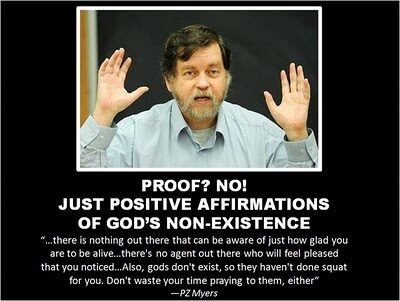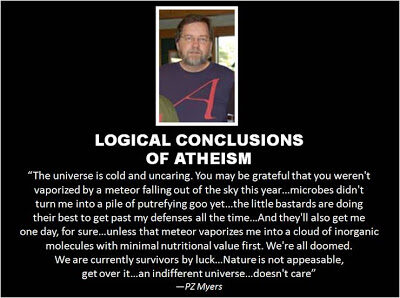Martin Buber on the “deactualized self”:
The capricious man does not believe and encounter. He does not know association; he only knows the feverish world out there and his feverish desire to use it…
When he says You, he means: You, my ability to use!…
In truth he has no destiny but is merely determined by things and drives, feels autocratic, and is capricious.
He has no great will and tries to pass off caprice in its place….But the unbelieving marrow of the capricious man cannot perceive anything but unbelief and caprice, positing ends and devising means. His world is devoid of sacrifice and grace, encounter and present, but shot through with ends and means: it could not be different and its name is doom.
For all his autocratic bearing, he is inextricably entangled in unreality; and he becomes aware of this whenever he recollects his own condition. Therefore he takes pains to use the best part of his mind to prevent or at least obscure such recollection.[1]
Having endured and digested the death knell which PZ Myers authored it seemed relevant to dissect certain portions.
Some people seemed to be honestly taken, in a good way in their estimation, by PZ Myers’ materialistic, mechanistic, reductionist, view of life. When that is all you think you have then, that is all you think you have. Sadly, they do not seem to stop, dissect his statements and note that they are premised upon an a priori presuppositional presumption of atheism.
Certainly, this is nothing but what one would expect, that an atheist to presuppose atheism, but one must nevertheless connect the dots of one thoughts and ask how PZ Myers reached such conclusions.
Let us glean from his essay Happy Wary Vigilance Day! about which we ought be wary and vigilant as it is a very, very confused text. This is because he attempts to weave together theism with materialism; a theistic concept with a materialistic application. Since this rather odd arrangement does not work, he takes pleasure in pointing out that it does not work and yet, it is a fallacious concoction of his own.
Let us note that within the text PZ Myers offers a Mosaic-mosaic as he promulgates four positive and six negative commandments all premised upon a positive atheism spiked “get over it”:
1. Sit at that table and contemplate the threats to your existence
2. Thank [helpful people] them personally
3. Share human feelings with other human beings
4. Have a grand old day off
5. Don’t sit at your table and think you’re being good
6. Don’t beam happy thoughts
7. Don’t be hypocritical and radiate gratitude
8. None of this nonsense
9. Don’t waste your time praying
10. Forget this silly business of feeling blindly thankful
Thus saith PZ.

He begins by stating “Sorry, I don’t believe in Thanksgiving Day” which is not surprising since whether you consider the Pilgrims or George Washington’s declaration; both reveal the Judeo-Christian, or generically theistic, premises upon which the USA is based.
PZ Myers presupposes positive atheism in the following terms: 1. “there is nothing out there that can be aware of just how glad you are to be alive” – please prove it. 2. “there’s no agent out there who will feel pleased that you noticed” – please prove it.
3. “Also, gods don’t exist, so they haven’t done squat for you. Don’t waste your time praying to them, either” – please prove it.
Based upon this unproven, unevidenced, a prior worldview adherence he states “This whole notion that one should have vague and aimless feelings of gratitude for the nature of one’s existence is just too weird” which is an arguments from personal incredulity; what seems weird to PZ Myers has no relevance to what is factual, true, moral, etc. Also, he is injecting the concepts of “vague” and “aimless” into the act so that it is easier for him to discredit. Yet, when I am grateful for my existence it is not “vague” and “aimless” but specific and aimful.
He makes the same fallacious presumption again in stating, “None of this nonsense of bland, undirected, unfocused, smug gratitude”; fine, none of that, but he is presupposing that they, we, are being bland, undirected, unfocused and smug. And again “forget this silly business of feeling blindly thankful” done; but who is being blindly thankful? He only thinks this as it is a logical conclusion from his illogical atheism.
He continues by stating that the “bow-your-head-at-the-table and radiate-blessings-at-the-cosmos tradition is pointless and silly.” I fully agree, even though what he or I think is pointless and silly is irrelevant. Since he presupposes positive atheism he thinks that people are “bow-your-head…radiate-blessings” aka praying “at-the-cosmos” but they are not; they are addressing God.
He states, “The universe is cold and uncaring” with which I fully agree. Yet, when we bow-our-heads radiating blessings we are not addressing the universe but its creator. Likewise with the statement, “don’t sit at your table and think you’re being good by warmly thanking an indifferent universe for whatever. It doesn’t care”; true but who is doing any such thing? He also states, “Nature is not appeasable, get over it” done; it is gotten over, but who thought to appease nature, Pagans?
 Now to the next issue which is that “Gratitude is to be shared between sentient beings” with which I again agree: I am grateful to a sentient God. His point is “Don’t get me wrong: I can be appropriately and happily grateful to people who have gone out of their way to do good for me…for the most part, our existence is not the product of selfless altruism.”
Now to the next issue which is that “Gratitude is to be shared between sentient beings” with which I again agree: I am grateful to a sentient God. His point is “Don’t get me wrong: I can be appropriately and happily grateful to people who have gone out of their way to do good for me…for the most part, our existence is not the product of selfless altruism.”
From here he explains that even the people you may imagine thanking are not worthy since they are merely greedily serving their own needs as he references “the machineries of profit…the market forces” thus:
Then a gang of people who were mostly concerned with trudging through another day and making a living wage decapitated it, gouged out its guts, stripped off its feathers, and wrapped it in plastic so you could thoughtlessly stuff fragments of its carcass into your hungry maw…If you’re eating tofurkey, you aren’t off the hook, either. Think of the soybeans!…Don’t beam happy thoughts at the farmers who stocked your larder — they can’t hear you, and they did it for their own personal profit anyway…you probably do have people who have done good things for you, at personal cost, and without carrying out the calculus of profit. If you want to have a day of thankfulness, thank them personally.
This is a false dichotomy as during my Thanksgiving Day supper, and I imagine that of many others, we thanked both God and humans. We rendered to Cesar that which is Cesar’s and to God that which is God’s.
Note that he references “luck” in the following terms, “We’re all doomed. We are currently survivors by luck, sustained by selfish processes, and I don’t thank luck” since it is fickle and asks if we would be “resentful of nonexistence, or place blame for random bad luck?”
Well, I, for one, do not believe in luck—good, bad or indifferent. But in the worldviews of PZ Myers and, as a prime example Richard Dawkins, “luck” replaces “miracle” but offers the same results, occupies the same station: the luck-of-the-gaps that can accomplish anything whilst filling the gaps in our knowledge. This is how Dawkins states it:
It is as though, in our theory of how we came to exist, we are allowed to postulate a certain ration of luck (The Blind Watchmaker, p. 145).
Explain[ing] how the complex, improbable appearance of design in the universe arises…makes heavier demands on luck (The God Delusion, p. 121).
Is it any wonder that he concludes,
We don’t actually need a plausible theory of the origin of life (The Greatest Show on Earth, p. 421)
If we are just here and that’s all, we need not bothersome explanations.
Thus, PZ Myers is overall confusing a theistic premise with a positive atheistic application, basing his comments on prejudicial presuppositions of that which people are doing during Thanksgiving and only accurately representing the doom, gloom and hopelessness which is the logical conclusion of atheism.
[1] Martin Buber (Walter Kaufmann, trans.), I and Thou (New York: Scribner’s, 1970), p. 111

